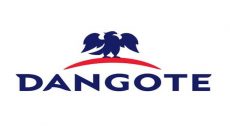INFRASTRUCTURE AND AFRICA’S DEVELOPMENT & PROSPERITY – THE PPP IMPERATIVE
Over the 15th to 16 May 2017, my esteemed brothers at the African Finance Corporation – Andrew Alli, Oliver Andrews, Taiwo Adeniji etc brought the best brains in Infrastructure Finance to Abuja for AFC live to celebrate 10 years of purpose and infrastructure financing impact in Africa. As I sat on my seat at this glittering ceremony; HE Acting President Osinbajo gave a most inspiring speech and clarion call for public private collaboration to address Africa’s infrastructure deficit. As I was thinking, I said Chidi if you are given an opportunity to address AFC live what would say. I then wrote this speech which am very happy to share with all as a way of reminding all that a lot of work still needs to be done to address the parlous state of infrastructure in Africa, but there is silver lining on the horizon and it’s called Public Private Partnerships.
As most speakers say in Nigeria, I would start by saying; Please permit me to adopt the already existing protocol (whatever that means in infrastructure terms).
It is indeed a great pleasure for me to address you at this celebration event in honour of the African Finance Corporation.
It’s very important to remind ourselves why Infrastructure is important to Africa’s development and prosperity.
Investment in Agriculture to improve productivity, create jobs and provide food security is futile if there are no processing plants to add value; no effective transportation and cold chain infrastructure to facilitate the supply chain that will get the produce (cocoa beans) and finished products (chocolate) to market and consumers.
The economic consequences and impact of the above situation, is very well explained by the President of the African Development Bank Akin Adesina. “Africa produces 75% of the world’s cocoa, but receives only 3% of the $100 billion a year revenue in the global market for chocolate”.
Due to lack of appropriate value chain infrastructure, Africa exports raw materials. As we all know the price of cocoa may decline, but never the price of chocolates. The price of cotton may fall, but never the price of clothes and garments President Adesina reminds us. While coffee farmers face declining prices, coffee grinders and Starbucks smile all the way to the Bank. Furthermore, due to lack of appropriate value chain infrastructure again, Africa Development Bank again tells us that Africa currently imports about $35 billion of food annually, expected to rise to $110 billion by 2025, if the current trend continues. Imagine what $35 billion will do if only we in Africa could feed ourselves. $35 Billion is enough to electrify all of Africa and the $110 billion potential future savings in food imports is enough to close Africa’s whole infrastructure deficit.
Continuing our exploration;
Essential medication from donors is rendered ineffective if it cannot be stored and transported in appropriate conditions to those in need. Without infrastructure we cannot be our brothers and sisters keepers.
Permit me to re emphasize again that the lack of modern infrastructure is a major challenge to our continents economic development and indeed constitutes a major impediment to the achievement of UN Sustainable Development Goals (SDGs) and other vital objectives such as revitalizing agriculture.
Africa’s infrastructure needs are enormous; from rural roads, to railways and harbours to irrigation systems, ICT, clean water, sanitation, energy and basic social infrastructure such as health, education, banking and commercial services. It is painful to recall that indeed millions of our fellow Africans lacks even the most basic of these fundamental infrastructure amenities. The actual infrastructural gaps are indeed deeply worrisome as estimated by the African Infrastructure Country Diagnostic report :
Less than a third of sub-Saharan Africans have electricityü
Only 56% have access to clean drinking water.ü
Barely a third of our rural Africans live near an all season road.ü
Just about 4% of our farmland is irrigatedü
Over 60% of our continents population lack basic sanitation facilitiesü
We have less than a quarter of paved roads per kilometer when compared to other developing regions.ü
Our infrastructure gap as outlined above is a major opportunity to transform and do well for our continents citizens. In view of this, it is indeed most appropriate that this AFC live event is focused on a much need Infrastructure Revolution and ways to address Africa’s infrastructure needs. We must embrace this challenge and rise to the occasion of Africa being infrastructure sufficient in the next 10 years. It is doable.
Africa is rich in natural resources and boasts a large young ambitious and entreprenial population. Harnessed properly, these factor endowments & advantages could usher in a period of sustained economic growth and increased wellbeing for all Africans.
Infrastructure and National Development in Africa
Infrastructure is often described as the capital stock that propels the provision of public goods and services in an economy. It produces various effects, including those on production activities and quality of life for households which thus permeate the entire society and economy of the nation at large. It is evident, that the absence of robust infrastructure will therefore hamper much needed efficient and effective economic activities to enhance growth, wealth and job creation and overall national development in all of Africa.
PPP Imperative and Urgency
Closing Africa’s infrastructure deficit is critical to ensuring continued development and economic growth. Falling commodity prices, budgetary constraints and an acknowledgement of private sector efficiencies and know-how are some of the principal reasons why governments around the world are taking the economic and political decision to accelerate the use of private sector finance and adopt Public Private Partnership models in order to deliver infrastructure projects which would have been previously built by the public sector using public sector finance. I hereby recommend a massive adoption of the PPP delivery model to accelerate infrastructure delivery in SS Africa.
India, Philippines, South Africa, Malaysia and many developed countries have accelerated their infrastructure provisioning through PPPs.
In the last 17 months Turkey has opened transportation infrastructure projects ie. The third Istanbul bridge over the Bosporus; The Eurasia Tunnel linking Europe and Asia under the Bosporus; The Izmir to Istanbul highway and sea bridge all costing over USD 8 Billion. In Turkey the largest airport in the world at over 7000 hectares (the 3rd Istanbul Airport) costing over USD 4 Billion is also being built. These projects would not have been built if the PPP imperative was not adopted by Turkey. Let’s copy from Turkey and develop Africa.
Distinguished Ladies and Gentlemen, some of the benefits of PPPs for African governments and taxpayers include:
Improved service delivery: Improved cost-effectiveness Increased investment in public infrastructure Reduce Public Sector Risk Improved budget certainty Make better use of assets:
Other benefits to the government and tax payers as stated by the International Project Finance Association include
Construction is completed to plan and to budget; repairs and maintenance are planned at the outset and in consequence assets and services are maintained at a pre-determined standard over the full length of the concession. PPPs help the public sector develop a more disciplined and commercial approach to infrastructure development whilst allowing them to retain strategic control of the overall project and service. In PPP structures the risk of performance is transferred to the private sector. The private sector only realizes its investment if the asset performs according to the contractual obligations.
BENEFITS OF PPPs FOR THE PRIVATE SECTOR
PPPs give the private sector access to secure, long-term investment opportunities. Private sector partners can profit from PPPs by achieving efficiencies, based on their managerial, technical, financial and innovation capabilities.
What African Must Government’s Do to Drive the PPP Imperative – We must have:
Strong political will and support
A steady pipeline of well-structured economic and social infrastructure projects;
Efficient, transparent and standardized PPP procurement processes, including consistent project agreements and payment mechanisms, evaluation methodologies, and financing requirements;
A framework of mutual trust between the public and private sectors to elicit and sustain the development of a diverse and competitive infrastructure supply ecosystem.
Financing instruments that supports long term low interest lending
Many other successful PPPs are abound in emerging economies; suffice it to name a few:
The Delhi Terminal Three Airport India – Transformed air transportation in India
The Guatrain High Speed Train in South Africa – Transformed urban and commuter transportation in South Africa.
The North South Highway Malaysia – This road running through the Thai border to Johor cut travel times from 19hrs to 6 hrs and transformed road transport and industrial cluster development in Malaysia.
West Port Malaysia and Tanjuan Pelapas Port Malaysia – Transformed Malaysia into a key Maritime player in South East Asia.
Each of these successes and more can be replicated in Africa.
Distinguished Ladies and gentlemen permit me to conclude by inviting you to come and be a coworker in realizing Africa’s promise.
Driving Infrastructure PPPs will rapidly industrialize Africa and create good quality jobs. Imagine an Africa where the Lagos Abidjan Corridor is a 10 lane world class highway; an Africa where the Cape to Cairo High Speed Train runs on time…What an Africa that would be. Harihuko Knoda former President of the Asian Development says “without appropriate infrastructure, countless millions of people will lack access to jobs, markets, hospitals and schools….am sure we do not want this type of Africa.
May you now permit me to challenge some of our long held beliefs, the Herdsmen and Farmer clashes we have heard around Africa is actually an infrastructure related problem. Just imagine if we had adequate transportation infrastructure to take cattle fodder to the herdsmen and adequate abattoir and cold chain transportation infrastructure to take their beef and dairy to all corners of Africa, what would happen; the herdsmen will stay at one place in ranches and these clashes will disappear. At one place their Cattle will become more productive in terms of beef, hides and dairy leading to unprecedented prosperity and well being for all.
As the world bank say’s a 1% increase in a nation’s infrastructure stock results in a direct 1% increase in GDP. The fastest way to accelerate economic growth in Africa is by developing truly world class infrastructure via PPPs.
Permit me to conclude by quoting HE President Muhammadu Buhari whose has honestly said to Nigerians in that “If we do not kill corruption, corruption will kill us”. In the same vein if we as Africans “do not kill our infrastructure deficit, the infrastructure deficit will kill us”.
Thank You All and God bless Africa
Oh Honey why did you wake me up. I was just delivering an infrastructure address at AFC live at the Transcorp Hilton, Abuja. Please is breakfast ready?
Andrew and all the wonderful people at AFC congratulations on your 10th Anniversary. Your success stories like the 900 Million USD Kpone IPP in Ghana, Transcorp Power Ughelli, Azura Power, Cabeolica Wind Power Cape Verde and your upstream role in creating the Africa Project Development Initiative is deeply recognized and appreciated by a grateful infrastructure hungry continent
Engr. Chidi K C Izuwah Snr
Acting Director General/CEO,
The Presidency,
Infrastructure Concession Regulatory Commission
Abuja, Nigeria
INFRASTRUCTURE AND AFRICA’S DEVELOPMENT & PROSPERITY – THE PPP IMPERATIVE
Over the 15th to 16 May 2017, my esteemed brothers at the African Finance Corporation – Andrew Alli, Oliver Andrews, Taiwo Adeniji etc brought the best brains in Infrastructure Finance to Abuja for AFC live to celebrate 10 years of purpose and infrastructure financing impact in Africa. As I sat on my seat at this glittering ceremony; HE Acting President Osinbajo gave a most inspiring speech and clarion call for public private collaboration to address Africa’s infrastructure deficit. As I was thinking, I said Chidi if you are given an opportunity to address AFC live what would say. I then wrote this speech which am very happy to share with all as a way of reminding all that a lot of work still needs to be done to address the parlous state of infrastructure in Africa, but there is silver lining on the horizon and it’s called Public Private Partnerships.
As most speakers say in Nigeria, I would start by saying; Please permit me to adopt the already existing protocol (whatever that means in infrastructure terms).
It is indeed a great pleasure for me to address you at this celebration event in honour of the African Finance Corporation.
It’s very important to remind ourselves why Infrastructure is important to Africa’s development and prosperity.
Investment in Agriculture to improve productivity, create jobs and provide food security is futile if there are no processing plants to add value; no effective transportation and cold chain infrastructure to facilitate the supply chain that will get the produce (cocoa beans) and finished products (chocolate) to market and consumers.
The economic consequences and impact of the above situation, is very well explained by the President of the African Development Bank Akin Adesina. “Africa produces 75% of the world’s cocoa, but receives only 3% of the $100 billion a year revenue in the global market for chocolate”.
Due to lack of appropriate value chain infrastructure, Africa exports raw materials. As we all know the price of cocoa may decline, but never the price of chocolates. The price of cotton may fall, but never the price of clothes and garments President Adesina reminds us. While coffee farmers face declining prices, coffee grinders and Starbucks smile all the way to the Bank. Furthermore, due to lack of appropriate value chain infrastructure again, Africa Development Bank again tells us that Africa currently imports about $35 billion of food annually, expected to rise to $110 billion by 2025, if the current trend continues. Imagine what $35 billion will do if only we in Africa could feed ourselves. $35 Billion is enough to electrify all of Africa and the $110 billion potential future savings in food imports is enough to close Africa’s whole infrastructure deficit.
Continuing our exploration;
Essential medication from donors is rendered ineffective if it cannot be stored and transported in appropriate conditions to those in need. Without infrastructure we cannot be our brothers and sisters keepers.
Permit me to re emphasize again that the lack of modern infrastructure is a major challenge to our continents economic development and indeed constitutes a major impediment to the achievement of UN Sustainable Development Goals (SDGs) and other vital objectives such as revitalizing agriculture.
Africa’s infrastructure needs are enormous; from rural roads, to railways and harbours to irrigation systems, ICT, clean water, sanitation, energy and basic social infrastructure such as health, education, banking and commercial services. It is painful to recall that indeed millions of our fellow Africans lacks even the most basic of these fundamental infrastructure amenities. The actual infrastructural gaps are indeed deeply worrisome as estimated by the African Infrastructure Country Diagnostic report :
Less than a third of sub-Saharan Africans have electricityü
Only 56% have access to clean drinking water.ü
Barely a third of our rural Africans live near an allü season road.
Just about 4% of our farmland is irrigatedü
Over 60% of our continents population lack basic sanitation facilitiesü
We have less than a quarter of paved roads per kilometer when compared to other developing regions.ü
Our infrastructure gap as outlined above is a major opportunity to transform and do well for our continents citizens. In view of this, it is indeed most appropriate that this AFC live event is focused on a much need Infrastructure Revolution and ways to address Africa’s infrastructure needs. We must embrace this challenge and rise to the occasion of Africa being infrastructure sufficient in the next 10 years. It is doable.
Africa is rich in natural resources and boasts a large young ambitious and entreprenial population. Harnessed properly, these factor endowments & advantages could usher in a period of sustained economic growth and increased wellbeing for all Africans.
Infrastructure and National Development in Africa
Infrastructure is often described as the capital stock that propels the provision of public goods and services in an economy. It produces various effects, including those on production activities and quality of life for households which thus permeate the entire society and economy of the nation at large. It is evident, that the absence of robust infrastructure will therefore hamper much needed efficient and effective economic activities to enhance growth, wealth and job creation and overall national development in all of Africa.
PPP Imperative and Urgency
Closing Africa’s infrastructure deficit is critical to ensuring continued development and economic growth. Falling commodity prices, budgetary constraints and an acknowledgement of private sector efficiencies and know-how are some of the principal reasons why governments around the world are taking the economic and political decision to accelerate the use of private sector finance and adopt Public Private Partnership models in order to deliver infrastructure projects which would have been previously built by the public sector using public sector finance. I hereby recommend a massive adoption of the PPP delivery model to accelerate infrastructure delivery in SS Africa.
India, Philippines, South Africa, Malaysia and many developed countries have accelerated their infrastructure provisioning through PPPs.
In the last 17 months Turkey has opened transportation infrastructure projects ie. The third Istanbul bridge over the Bosporus; The Eurasia Tunnel linking Europe and Asia under the Bosporus; The Izmir to Istanbul highway and sea bridge all costing over USD 8 Billion. In Turkey the largest airport in the world at over 7000 hectares (the 3rd Istanbul Airport) costing over USD 4 Billion is also being built. These projects would not have been built if the PPP imperative was not adopted by Turkey. Let’s copy from Turkey and develop Africa.
Distinguished Ladies and Gentlemen, some of the benefits of PPPs for African governments and taxpayers include:
Improved service delivery: Improved cost-effectiveness Increased investment in public infrastructure Reduce Public Sector Risk Improved budget certainty Make better use of assets:
Other benefits to the government and tax payers as stated by the International Project Finance Association include
Construction is completed to plan and to budget; repairs and maintenance are planned at the outset and in consequence assets and services are maintained at a pre-determined standard over the full length of the concession. PPPs help the public sector develop a more disciplined and commercial approach to infrastructure development whilst allowing them to retain strategic control of the overall project and service. In PPP structures the risk of performance is transferred to the private sector. The private sector only realizes its investment if the asset performs according to the contractual obligations.
BENEFITS OF PPPs FOR THE PRIVATE SECTOR
PPPs give the private sector access to secure, long-term investment opportunities. Private sector partners can profit from PPPs by achieving efficiencies, based on their managerial, technical, financial and innovation capabilities.
What African Must Government’s Do to Drive the PPP Imperative – We must have:
Strong political will and support
A steady pipeline of well-structured economic and social infrastructure projects;
Efficient, transparent and standardized PPP procurement processes, including consistent project agreements and payment mechanisms, evaluation methodologies, and financing requirements;
A framework of mutual trust between the public and private sectors to elicit and sustain the development of a diverse and competitive infrastructure supply ecosystem.
Financing instruments that supports long term low interest lending
Many other successful PPPs are abound in emerging economies; suffice it to name a few:
The Delhi Terminal Three Airport India – Transformed air transportation in India
The Guatrain High Speed Train in South Africa – Transformed urban and commuter transportation in South Africa.
The North South Highway Malaysia – This road running through the Thai border to Johor cut travel times from 19hrs to 6 hrs and transformed road transport and industrial cluster development in Malaysia.
West Port Malaysia and Tanjuan Pelapas Port Malaysia – Transformed Malaysia into a key Maritime player in South East Asia.
Each of these successes and more can be replicated in Africa.
Distinguished Ladies and gentlemen permit me to conclude by inviting you to come and be a coworker in realizing Africa’s promise.
Driving Infrastructure PPPs will rapidly industrialize Africa and create good quality jobs. Imagine an Africa where the Lagos Abidjan Corridor is a 10 lane world class highway; an Africa where the Cape to Cairo High Speed Train runs on time…What an Africa that would be. Harihuko Knoda former President of the Asian Development says “without appropriate infrastructure, countless millions of people will lack access to jobs, markets, hospitals and schools….am sure we do not want this type of Africa.
May you now permit me to challenge some of our long held beliefs, the Herdsmen and Farmer clashes we have heard around Africa is actually an infrastructure related problem. Just imagine if we had adequate transportation infrastructure to take cattle fodder to the herdsmen and adequate abattoir and cold chain transportation infrastructure to take their beef and dairy to all corners of Africa, what would happen; the herdsmen will stay at one place in ranches and these clashes will disappear. At one place their Cattle will become more productive in terms of beef, hides and dairy leading to unprecedented prosperity and well being for all.
As the world bank say’s a 1% increase in a nation’s infrastructure stock results in a direct 1% increase in GDP. The fastest way to accelerate economic growth in Africa is by developing truly world class infrastructure via PPPs.
Permit me to conclude by quoting HE President Muhammadu Buhari whose has honestly said to Nigerians in that “If we do not kill corruption, corruption will kill us”. In the same vein if we as Africans “do not kill our infrastructure deficit, the infrastructure deficit will kill us”.
Thank You All and God bless Africa
Oh Honey why did you wake me up. I was just delivering an infrastructure address at AFC live at the Transcorp Hilton, Abuja. Please is breakfast ready?
Andrew and all the wonderful people at AFC congratulations on your 10th Anniversary. Your success stories like the 900 Million USD Kpone IPP in Ghana, Transcorp Power Ughelli, Azura Power, Cabeolica Wind Power Cape Verde and your upstream role in creating the Africa Project Development Initiative is deeply recognized and appreciated by a grateful infrastructure hungry continent
Engr. Chidi K C Izuwah Snr
Acting Director General/CEO,
The Presidency,
Infrastructure Concession Regulatory Commission
Abuja, Nigeria
























